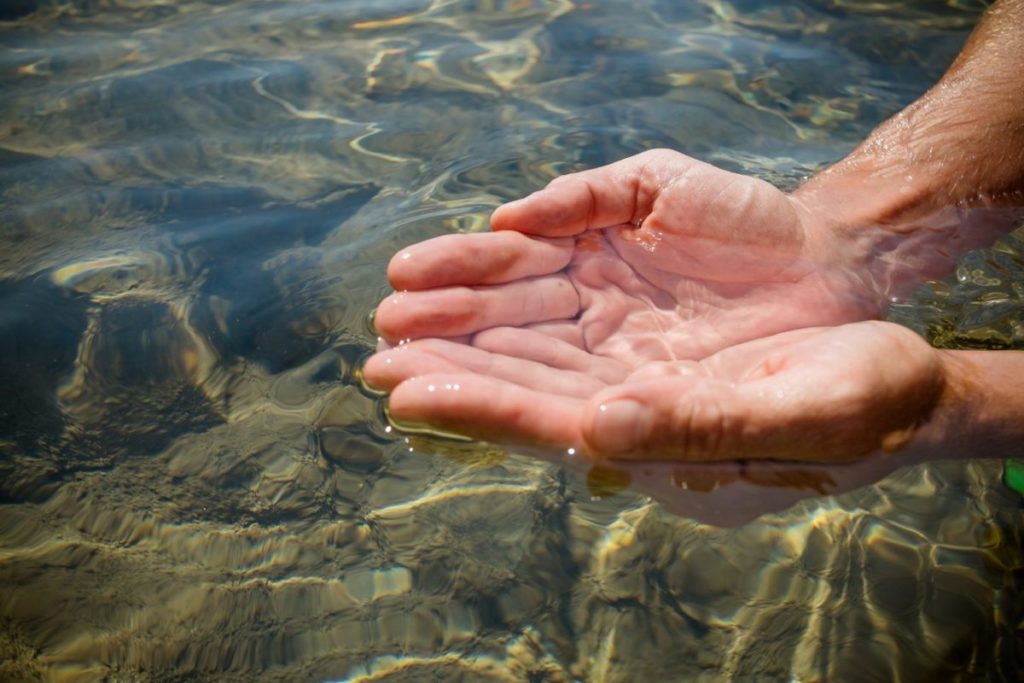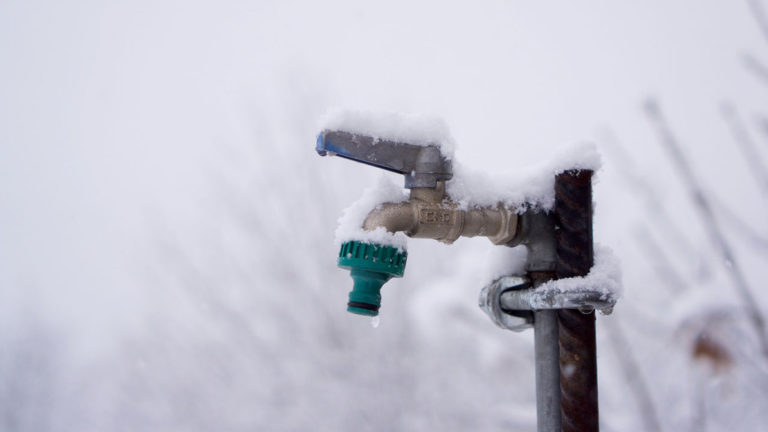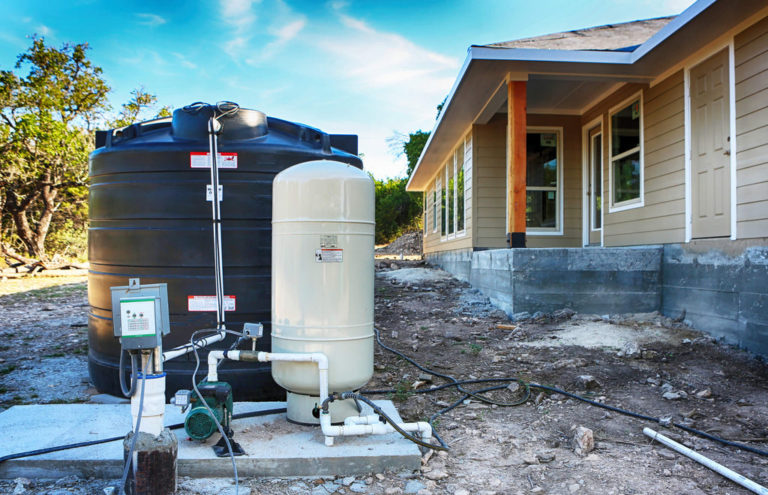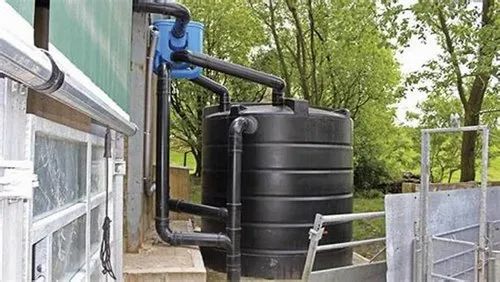As we venture into a more sustainable and self-sufficient lifestyle, it’s important to understand the importance of water conservation in off-grid living.
Water is life, and every drop counts when you’re not connected to city services.
By adopting conscious water-saving practices, you can reduce your ecological footprint, save money on water bills, and ensure a reliable supply for all your needs.
From efficient irrigation systems to low-flow appliances, there are numerous practical solutions that can help you conserve this precious resource and thrive in off-grid living.
So let’s dive into the world of water conservation and discover how we can make the most of this essential element!
Water is a precious resource
Water is essential for human survival, but it is a limited resource in many areas, especially off the grid. Conserving water is critical to ensure a sustainable supply for your family’s needs.
By adopting water-saving practices and technologies, families can help stretch their water supply and protect the environment.
Simple steps such as fixing leaks, using low-flow fixtures, and taking shorter showers can make a significant difference.
Using rainwater harvesting systems and gray water reuse can help reduce the demand on municipal water supplies.
Implementing these conservation measures not only ensures a sustainable supply of water for your family’s needs but also reduces your carbon footprint and saves money on your water bill.
Investing in water-saving solutions is an important step towards a more sustainable future, especially for those living off the grid.
Rainwater harvesting
Off-grid living often relies on rainwater harvesting for a reliable water supply. By collecting and storing rainwater, you can conserve this valuable resource and reduce your dependence on other sources.
Off-grid living frequently relies on rainwater harvesting to ensure a reliable water supply.
This eco-friendly practice involves collecting and storing rainwater for various household uses, such as drinking, cooking, and cleaning.
By harnessing the natural resource of rainwater, you can conserve this valuable supply and reduce your dependence on other sources, such as municipal water supplies or bottled water.
Rainwater harvesting can help reduce your water bill and lower your carbon footprint.
There are several ways to collect and store rainwater, including the use of rain barrels, cisterns, and other types of water storage tanks.
These systems can be installed at both residential and commercial properties, and can be customized to meet specific needs and preferences.
To ensure the safety and quality of the harvested rainwater, it is important to install a proper filtration and treatment system, such as a first flush device, which removes contaminants and debris from the water.
By implementing rainwater harvesting in your off-grid living setup, you can not only conserve water but also reduce your reliance on other energy-intensive water sources.
Harnessing rainwater can help mitigate the effects of droughts, which are becoming increasingly common in many parts of the world.
Overall, rainwater harvesting is an essential component of off-grid living, providing a sustainable and reliable water supply for a variety of household needs.
Grey water systems
Grey water systems utilize wastewater from sinks, showers, and washing machines to irrigate plants or flush toilets, reducing the amount of potable water needed.
Grey water systems are an innovative solution for conserving potable water in residential and commercial settings.
By utilizing wastewater from sinks, showers, and washing machines, these systems are able to irrigate plants or flush toilets, significantly reducing the amount of potable water needed.
This is achieved through a network of pipes and storage tanks that collect and treat the grey water, which is then reused for non-potable purposes.
The benefits of grey water systems are numerous, including reduced water bills, lowered environmental impact, and increased water sustainability.
Grey water systems can be customized to meet the specific needs of each property, making them a versatile and effective solution for water conservation.
With proper installation and maintenance, grey water systems can provide a reliable and sustainable source of water for irrigation and flushing, helping to protect our planet’s most valuable resource.
Water-efficient appliances
Installing water-efficient appliances such as low-flow toilets, showerheads, and faucets can significantly reduce water consumption in off-grid living.
Installing water-efficient appliances is a important step towards reducing water consumption in off-grid living.
Low-flow toilets, showerheads, and faucets are designed to minimize water usage while maintaining the same level of performance as their traditional counterparts.
For instance, low-flow toilets use significantly less water per flush than traditional toilets, while still providing the same level of flushing performance.
Similarly, showerheads and faucets use advanced technology to deliver a consistent water pressure while using less water.
By installing these water-efficient appliances, off-grid homeowners can significantly reduce their water consumption.
According to the Environmental Protection Agency (EPA), a low-flow toilet can save up to 20 gallons of water per day, while a water-efficient showerhead can save up to 2.5 gallons of water per minute.
Similarly, a low-flow faucet can save up to 30 gallons of water per day.
These savings can add up to significant water conservation over time, making a significant impact on the environment and your water bill.
In addition to the environmental benefits, installing water-efficient appliances can also provide cost savings.
According to the U.S. Environmental Protection Agency (EPA), a family of four can save up to $400 per year by installing low-flow fixtures and appliances.
Furthermore, many water-efficient appliances are eligible for rebates and incentives from local utilities and governments, providing an added financial incentive to make the switch.
Overall, installing water-efficient appliances is a simple yet effective way to reduce water consumption in off-grid living.
By making the switch to low-flow toilets, shower heads, and faucets, off-grid homeowners can conserve water, reduce their water bill, and contribute to a more sustainable future.
Catchment systems
Catchment systems can be installed to collect and store rainwater and other forms of precipitation. This water can be used for a variety of purposes, including irrigation and flushing toilets.
Catchment systems can be installed to collect and store rainwater and other forms of precipitation, providing a reliable source of water for various household and commercial applications.
These systems typically involve the installation of a gutter system on the roof, which directs rainwater into a storage tank.
The water collected can be used for a variety of purposes, including irrigation of gardens and crops, flushing toilets, and washing clothes and cars.
In addition, rainwater harvesting can help reduce the strain on municipal water supply systems, especially during times of drought or water scarcity.
Depending on the size of the catchment system and the amount of rainfall in a given area, households and businesses can significantly reduce their reliance on potable water, thereby saving money and conserving this precious resource.
Properly maintained catchment systems can also help reduce the risk of water-borne diseases by ensuring that the water used is clean and free of contaminants.
Overall, installing a catchment system is a smart and cost-effective way to manage water resources and prepare for the future.
Drip irrigation
Drip irrigation systems deliver water directly to the roots of plants, reducing evaporation and runoff, and maximizing water efficiency.
Drip irrigation systems are a highly efficient way to water plants, delivering water directly to the roots of the crops.
Unlike traditional sprinkler systems, which can lead to evaporation and runoff, drip irrigation systems allow for a precise delivery of water directly to the soil around the base of the plants.
This results in a significant reduction in water waste, as well as a decrease in the amount of water needed to support healthy plant growth.
In addition, drip irrigation systems can help to prevent soil erosion and minimize the risk of overwatering, making them an excellent choice for gardeners and farmers looking to maximize water efficiency.
By using drip irrigation systems, gardeners can enjoy healthier, more thriving plants while also conserving this precious resource.
Water-efficient gardening
Planting drought-tolerant plants and using efficient irrigation methods can help minimize water usage in off-grid living. Mulching and composting can also help retain moisture in the soil and reduce the need for water.
One effective way to minimize water usage in off-grid living is by planting drought-tolerant plants and using efficient irrigation methods.
These types of plants are specially bred to thrive in dry conditions and can survive with minimal watering.
In addition, efficient irrigation methods such as drip irrigation and graywater systems can help distribute water more effectively and reduce waste.
To further enhance the soil’s ability to retain moisture, mulching and composting can also be implemented.
Mulching adds a layer of organic material to the soil, while composting helps break down organic matter into a nutrient-rich soil amendment.
Both methods can help retain moisture in the soil and reduce the need for water.
By implementing these strategies, off-grid living can be more sustainable and water-efficient.
Monitoring water usage
Keeping track of water usage through monitoring can help identify areas where conservation can be implemented and make adjustments as needed. This can include metering water usage, tracking rainfall, and monitoring water storage.
Monitoring water usage through metering, tracking rainfall, and monitoring water storage can help identify areas where conservation can be implemented and make adjustments as needed.
By measuring the volume of water being used, you can identify leaks, inefficiencies, and areas of high usage.
This information can then be used to make informed decisions about how to reduce water usage and optimize water conservation efforts.
For example, if you notice that a particular area of your property is using more water than others, you can explore options such as installing low-flow fixtures, fixing leaks, or adjusting irrigation schedules to reduce water usage.
Tracking rainfall can help you determine how much water you have available for use, and monitoring water storage can help you determine how much water is currently stored, allowing you to make adjustments as needed.
By regularly monitoring water usage and making adjustments based on the data, you can optimize your water conservation efforts and ensure a sustainable water supply for your property.
Want More? Dive Deeper Here!
Hey there! If you’re the type who loves going down the rabbit hole of information (like we do), you’re in the right spot. We’ve pulled together some cool reads and resources that dive a bit deeper into the stuff we chat about on our site. Whether you’re just killing time or super into the topic, these picks might just be what you’re looking for. Happy reading!
- | College of Engineering
- Water Conservation in Your Landscape | Mississippi State University Extension Service
- Renewable & Appropriate Energy Laboratory
- Efficient Use of Water in the Garden and Landscape – Earth-Kind® Landscaping Earth-Kind® Landscaping
- Home – Walter Scott, Jr. College of Engineering






